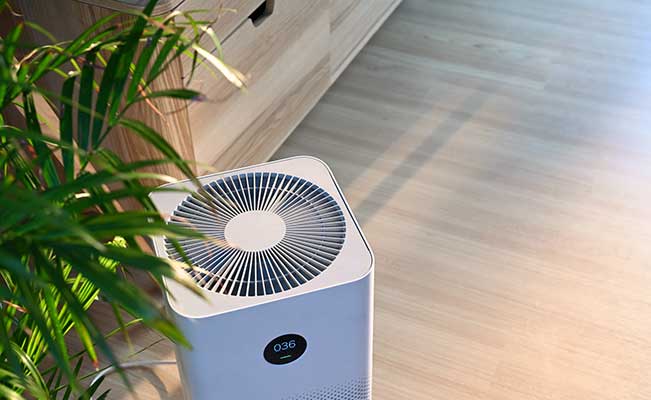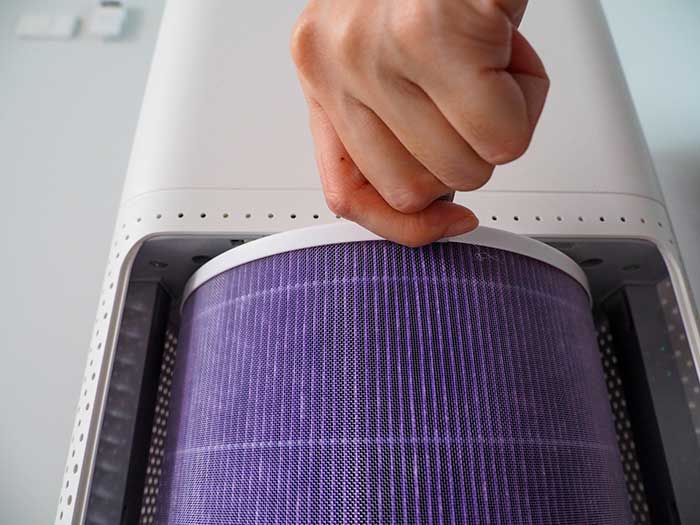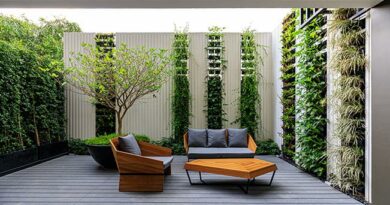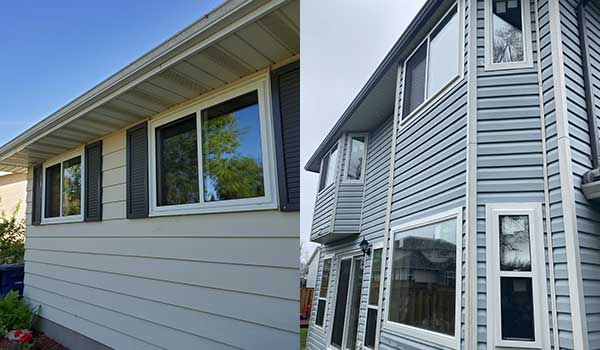7 Care And Maintenance Tips For Air Purifiers
Like any appliance or system in your home, air purifiers require regular care and maintenance to ensure proper functioning and prevent damage. Without these, your purifier might overwork, leading to frequent wear and tear, and potentially causing you to replace the unit more often than necessary.

However, with a few preventive measures, you can avoid the need for frequent repairs and save money in the long run. The following sections detail some effective strategies for maintaining your air purifier:
- Maintain Air Purifier Efficiency By Reducing Indoor Pollution
As the name suggests, the air purifier’s primary role is to improve your home’s air quality. If your house is highly contaminated, your air purifier will overwork to cleanse it. An overworked air purifier can increase your power bills, become inefficient, and even break down more easily.
Maintaining a cleaner environment in your home means your air purifier doesn’t have to work as hard, reducing strain on its motor and filters. This ultimately leads to less frequent maintenance and potentially extends the lifespan of your air purifier.
Dust and clean your home regularly to eliminate dirt and dust. On the other hand, regularly vacuuming your carpets can reduce the amount of pet fur in your home. Alternatively, you could consider investing in what’s often rated as the ‘best air purifier for pets.’ Such air purifiers are specifically designed to handle a higher amount of pet fur and dander, effectively reducing the potential allergens in your home and easing the workload on the purifier itself.
If you’re uncertain about the quality of your home’s air, it could be beneficial to use an indoor air quality monitor. Knowing the exact state of your air could help you make more informed decisions about the use and maintenance of your air purifier, as well as your overall health and comfort.
- Keeping An Eye On The Filters
Clogged filters prevent the air purifier from working correctly. An air purifier with clogged filters overworks itself, resulting in regular wear and tear. If your purifier has a filter change indicator light, replace the filters as soon as the indicator says so. You can also adhere to the air purifier maintenance schedule to keep the system running.

Even if your air purifier doesn’t show visible signs of dirt buildup, it’s important to consistently perform regular maintenance. Some dirt might not be visible to the naked eye.
- Cleaning The Filters
Besides replacing, cleaning the filters improves your air filter’s performance. However, before washing the filters, you should learn the type you’re dealing with. Generally, air purifiers come with either of the following filters:
- HEPA Filters: High-Efficiency Particulate Air (HEPA) filters are made of small fibers that trap tiny air pollutants. These filters trap the pollutants permanently and are among the most effective, making them expensive. With regular checkups, HEPA filters perform a great job of purifying the air. Based on their costs, HEPA filters require regular cleaning since they can add up to a significant amount if you choose to replace them.
- Pre-Filters: Pre-filters are vital components in an air purifier. Their primary role is to extend the HEPA filters’ lifespan. These filters require regular cleaning, depending on the model. Pre-filters are designed to trap significant pollutants. Unlike HEPA filters, they’re made of loose fibers.
- Carbon Filters: Carbon filters are made of activated carbon chunks. They’re fitted in the purification system to trap chemicals and odors. Carbon filters differ depending on density and purpose. Larger carbon filters absorb more air-borne pollutants.
Understanding and properly maintaining the different types of filters in your air purifier is crucial to ensuring its optimal operation and prolonging its lifespan.
- Avoiding Running A Malfunctioning Air Purifier
If your air purifier makes unusual sounds or unexpectedly shuts off, it’s best to stop using it until it can be inspected by a professional. In most cases, an air purifier shuts off or produces noises if it has broken components that need immediate attention. Running an air purifier in this state will only worsen the problem.
- Turning Off The Purifier Before Unplugging It
If you must unplug the air purifier, switch it off first. Unplugging your air purifier while it’s still running can cause electrical surges, which have the potential to damage the system.
- Not Ignoring The Owner’s Manual
Air purifiers differ depending on the brand. Following the maintenance guidelines provided in the owner’s manual is crucial for preserving the functionality and longevity of your air purifier. The booklet contains precise information on installation, replacements, and maintenance guidelines to prolong the system’s life and avoid unnecessary damage.
- Facilitating Proper Airflow
Obstructing airflow is among the mistakes many homeowners make. This mistake causes the air purifier to overwork due to blockage. Ensure proper airflow around the unit by keeping it more than two feet away from walls, furniture, or other objects.
Conclusion
An air purifier plays a significant role in improving your home’s air quality, but without proper care, its performance can degrade and potentially lead to costly damage. Regular maintenance is critical not just for extending the unit’s lifespan but also for keeping it working efficiently and effectively.



